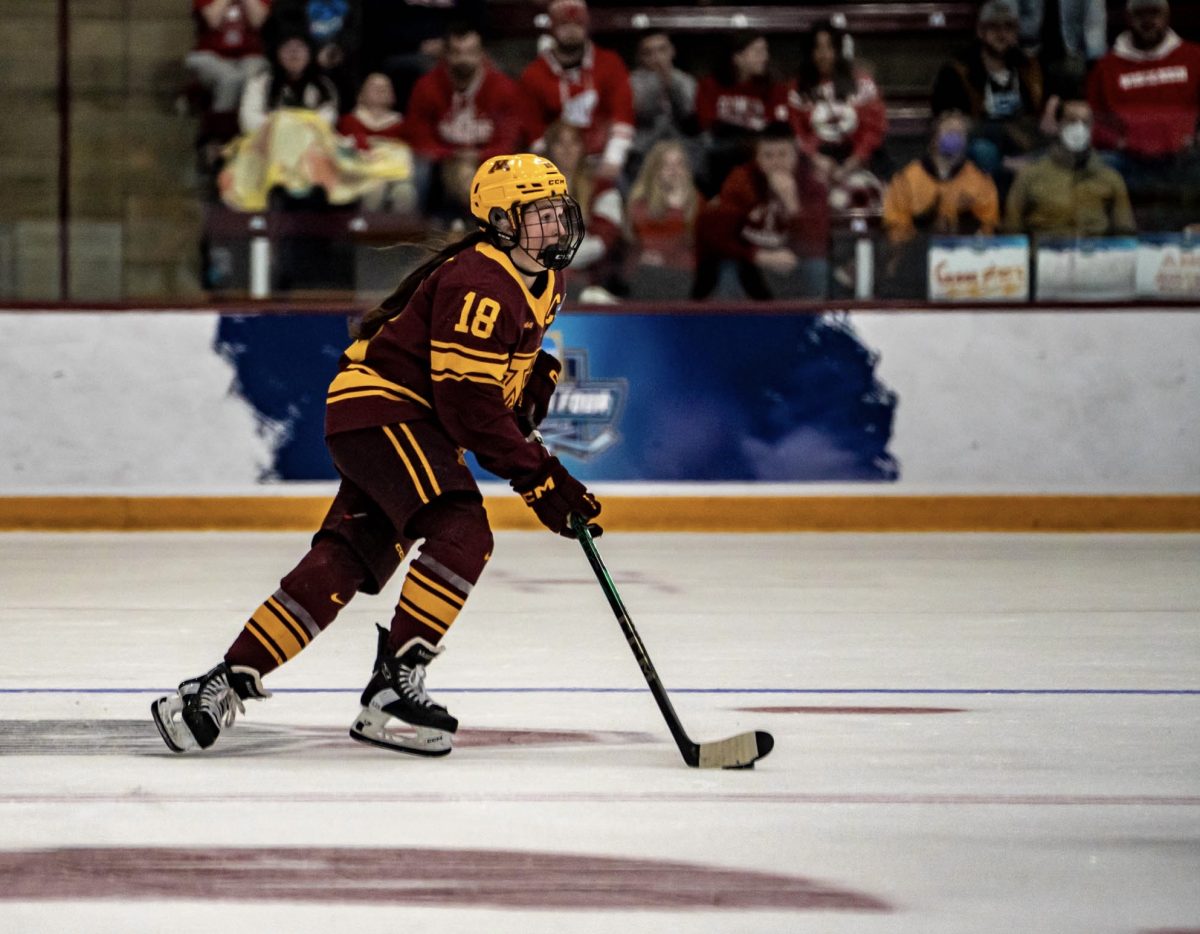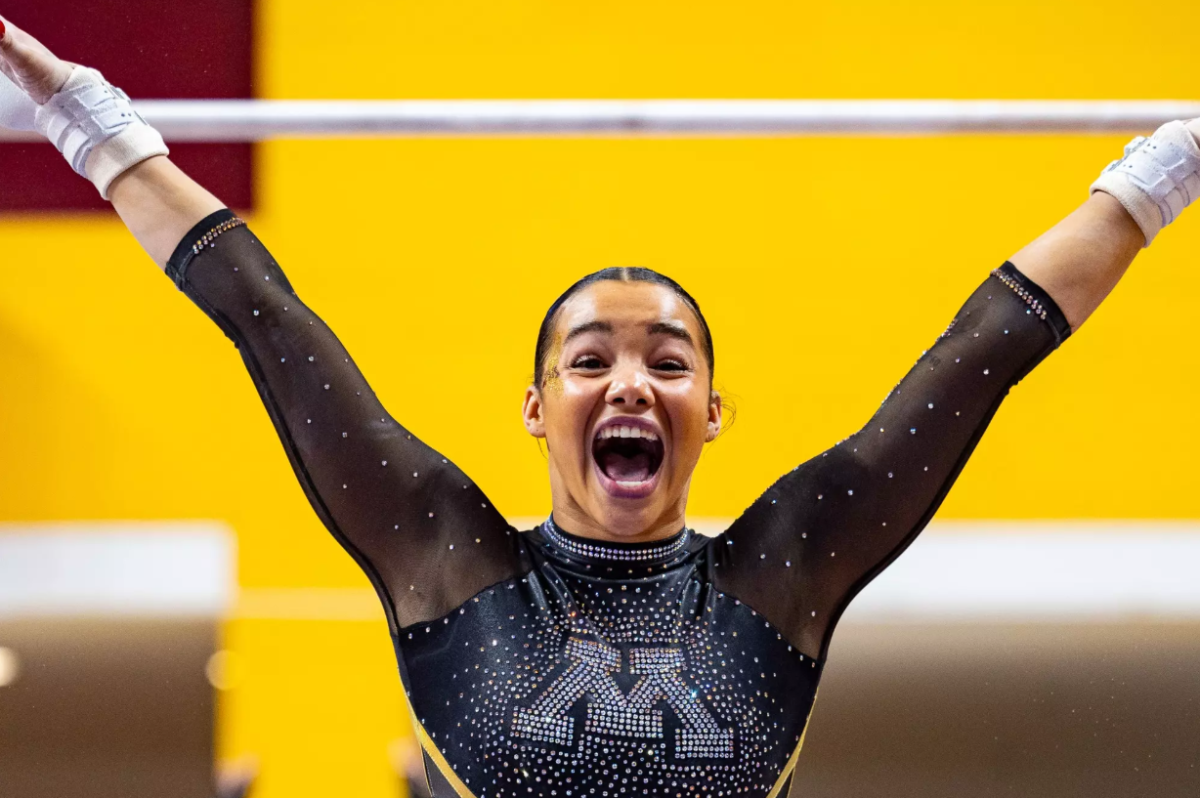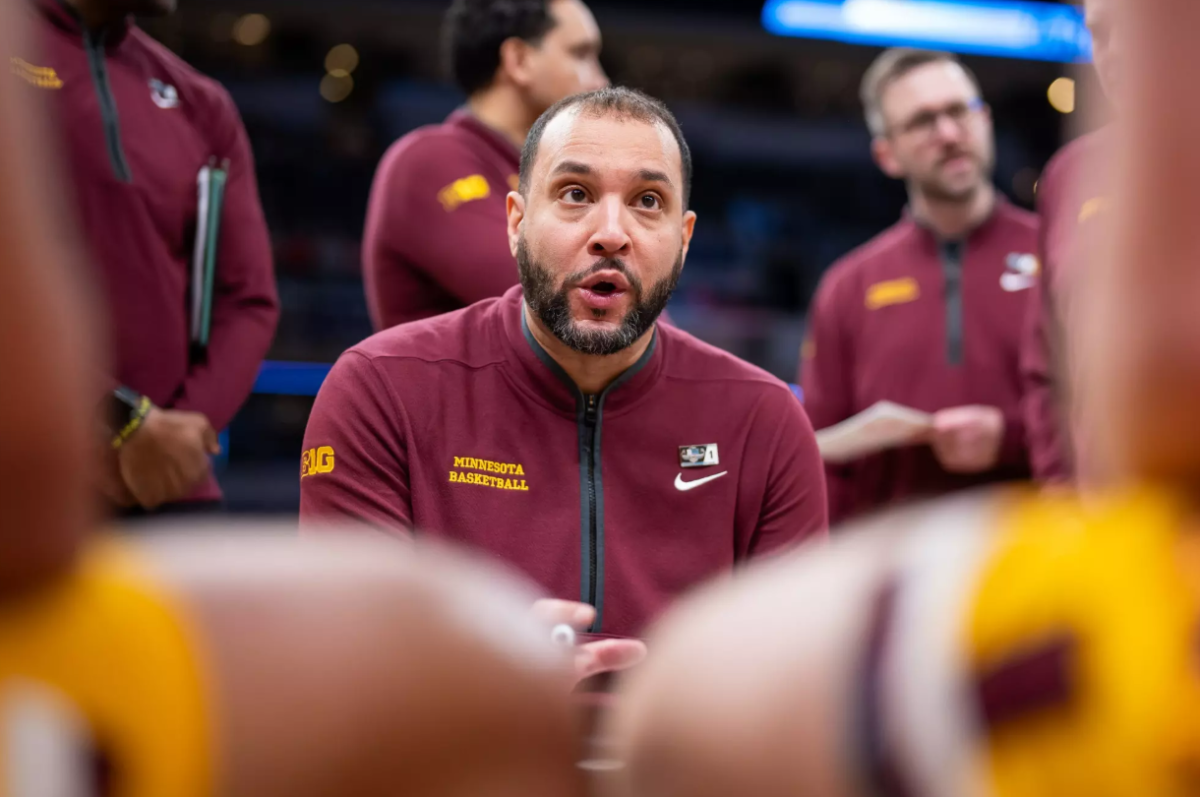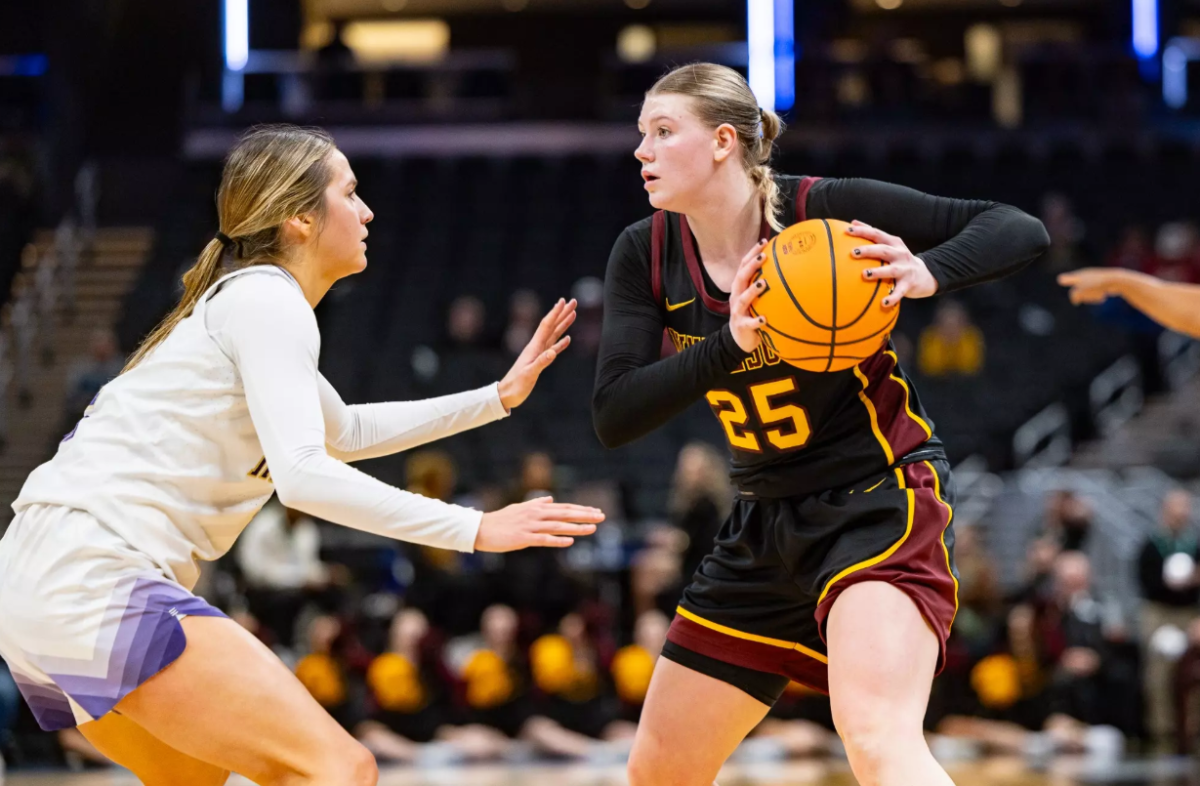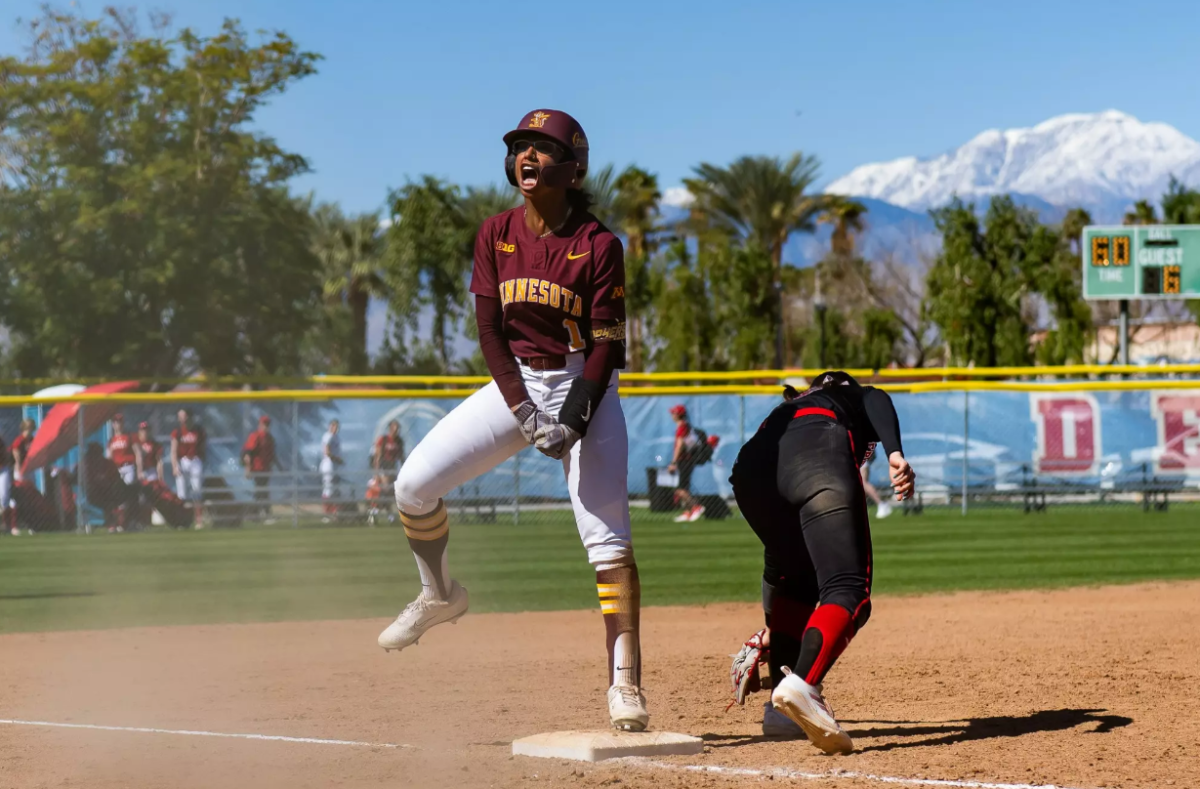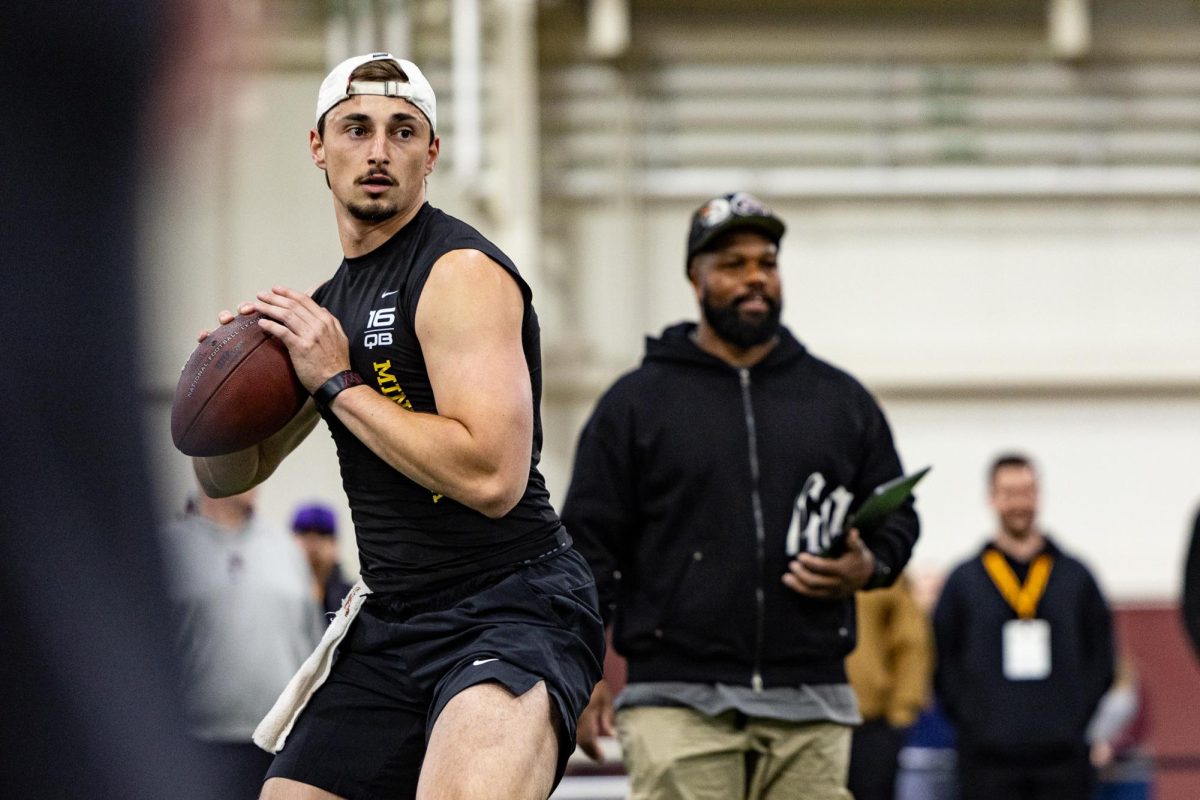Katie Brenny traveled more than 1,000 miles to take a “dream job” at the University of Minnesota under former Director of Golf John Harris, one of her attorneys said Friday.
But Brenny resigned in October 2010, less than two months after becoming associate head coach for the women’s golf team. She sued the University’s Board of Regents for discrimination, claiming Harris restricted her coaching duties after learning she is a lesbian.
As both sides made closing arguments Friday, the University said Harris simply had problems with Brenny’s performance and didn’t know her sexual orientation until she filed suit.
“It may be that Harris is a poor communicator … or that the student players didn’t like him,” said University Associate General Counsel Brent Benrud. “But whether or not he was a good coach does not mean he was a discriminator or a bigot or a homophobe.”
In a complaint filed in Hennepin County District Court, Brenny claims the University changed her job description after she complained that Harris curbed her responsibilities while allowing John Carlson, then-associate head coach for the men’s team, to carry on without any changes.
Brenny’s attorneys hired human resources consultant Arlene Vernon to investigate the University’s handling of Brenny’s complaints. In a report presented Wednesday, Vernon called the restrictions placed on Brenny a “demotion,” saying she had been stripped of all coaching responsibilities.
Harris allegedly kept Brenny from traveling, meeting with and instructing the team. He delegated most of those tasks to Ernie Rose, his son-in-law and then-director of instruction.
Vernon said Brenny lost some coaching duties when she instructed a player after Harris told her not to.
But Carlson’s duties also didn’t include instructing players, he testified Wednesday. Carlson now serves as the head men’s coach.
Benrud said Harris had told all the golf coaches not to instruct players until the winter. The fall season, Benrud said, was for observing the players’ styles.
“I recognize that the concept of a golf coach not providing instruction to golfers is a hard one to grasp,” he said.
Carlson’s relationship with Harris was “uncomfortable,” and Harris was a bad communicator, Carlson testified.
Vernon said a mid-year evaluation of Harris conducted by former associate athletics director David Crum found serious issues with Harris’ performance. Vernon said she was surprised the University didn’t discipline Harris.
Brenny alleged Harris didn’t allow her to do the work she was hired for. Instead, she said, he had her escort several men’s team recruits, type up team schedules and told her he didn’t want her to meet with the women’s team.
But Carlson carried out many of the same administrative and typing tasks Brenny had bristled under, Benrud said, because they come with any coaching position.
Brenny was dissatisfied with her position because she understood coaching from a former player’s perspective, Benrud said — she thought she would mostly travel and teach.
Liz Eull, University deputy chief of staff for policy and initiatives, testified Thursday that she thought Brenny’s duties were similar to other University coaches’.
A question of timing
Attorneys for both sides disagreed over when Harris discovered Brenny’s sexual orientation.
Donald Chance Mark Jr., who is representing Brenny, said Rose learned Brenny is a lesbian after the University hired her, but before she came to campus. He told Harris, Mark said, which is why Harris’ demeanor toward Brenny changed so rapidly.
But many witnesses painted Harris as a man focused almost entirely on golf, Benrud said.
“He was not a person who socialized or engaged in idle chitchat.”
Benrud argued that most of the communication between Harris and his son-in-law would have been about golf, and Brenny’s sexuality never would’ve come up. He also said Rose learned about Brenny’s sexual orientation later than her attorneys claimed he did.
The prosecution claimed Harris told others he wouldn’t allow Brenny to stay with players during team travel after he discovered her sexual orientation.
Harris also told Brenny to keep away from the seniors on the team and instead focus on the freshmen, the complaint said. He told her she could talk to them about “boys, life and school,” but nothing about golf instruction, according to the complaint.
Harris did not know Brenny was a lesbian when he added her to a short list of candidates for the associate head coach position, Benrud said. But he did know the other woman on the list was a lesbian. Had Harris been prejudiced against lesbians, he would never have considered one for the job, Benrud said.
Clashes over coaching styles
Eull testified Thursday that Harris had told her he was unhappy with Brenny’s performance in her first two weeks on the job. He said the University wanted to fire Brenny.
But Harris’ complaints about Brenny’s work were excuses to get rid of her for her sexual orientation, Mark said.
For example, several witnesses testified that Harris became extremely upset when he heard Brenny had told players they could tell her if they used cocaine. She said she would keep it from Harris, Mark said.
But players testified that the remark was meant to show them they could come to Brenny with their problems, not that she encouraged drug use, Mark said.
Benrud said Brenny decided the job wasn’t for her shortly after she started. She testified that she had already begun looking for a new job before her job description changed.
“The fact is, plaintiff never gave the job a chance,” Benrud said.
Effects on a life, career
Brenny went months without socializing after she resigned and returned to North Carolina, Mark said.
After Brenny’s partner urged her to get out of the house, the former coach volunteered at a food shelf, partly because nobody would recognize her there, Mark said.
Mark said Brenny volunteered for a junior golf program in North Carolina and her supervisor gave her glowing reviews.
But if Brenny ever applies for another collegiate golf position, she’ll have to explain why she spent less than two months at Minnesota, he said.
“Nobody’s going to question John Harris,” Mark said. “They’re going to question Katie Brenny.”
Mark said the University owes Brenny about $215,000 in compensatory damages plus damages for her suffering. He also said the University should have to pay punitive damages.
Brenny’s attorney said it’s “disheartening” that the alleged discrimination occurred at the University, an institution with a mission statement that includes an atmosphere of mutual respect free from prejudice.
Benrud said Brenny told University employees about her problems communicating with Harris and understanding her role as associate head coach. She didn’t bring up discrimination in those discussions, Benrud said.
Both parties must submit briefs to Hennepin County District Judge Thomas Sipkins before he rules on the case.


